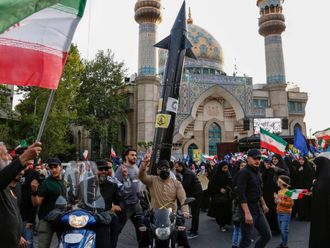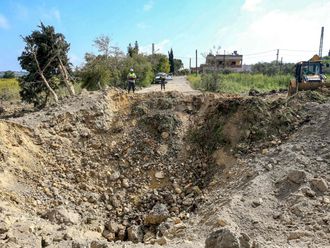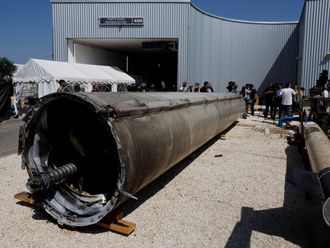Beirut: Although the 2013-2014 winter season was extremely mild with limited rain and snowfall, Lebanon boasted 16 rivers, a unique geological system in the Arab World.
The country’s meteorological service announced that while 850mm of annual rainfall accumulates over 10,452 km2 during a normal year, only 431mm (17 inches) of precipitation were recorded since September 2013, or less than half of 2012’s 905.8 mm. Actual demand for water in Lebanon was over 3 billion m3 per year divided between 1 billion m3 for individuals and 2 billion m3 for agriculture.
Since rainfall and existing resources are insufficient, shortages are aplenty and irregular water service is a given in most parts of the land. Residents buy water by the truckload and families stock on bottled drinking water on a more or less permanent basis.
Against a plethora of complaints, savvy politicians rush with comical solutions, including plans to import water from Turkey (forgotten after a few news cycles), though far more sinister plans are in the works to transform the shortage into a profit-making enterprise.
A few months ago, a massive marketing campaign was launched for the Blue Gold project, which called on residents to vote for a new water plan that, in what was a clever ploy, proposed to transform water into a profitable commodity for leading investors.
Blue Gold identified the project as a mechanism to end wastage and claimed that it could lead to a water surplus of “500 million m3 if (Beirut) properly managed the shallow and groundwater reservoirs.” Beyond poor management and massive population growth on account of millions of refugees, the 3 billion m3 demand was expected to exceed 4 billion m3 by 2025, although UN studies anticipate even higher figures.
Serious conservation efforts, led by sorely needed public education, the construction of dams and artificial lakes could potentially alleviate coming shortages, although the additional quantities needed for agriculture surpass current predictions. Hence various commercial projects like Blue Gold to market the resource into a profitable commodity. Naturally, senior government officials are aware of the potential, but perceive the private sector initiatives as beneficial — especially to themselves.
Lebanon has the highest proportion of arable land to residents in the Arab world, although barely 12 per cent of the land is cultivated, even if agriculture output contributed about 11-14 per cent of the country’s GDP. Farmers — whose wealth comes from powerful clans or political associations — need access to water and feel no compunction to regularly tap into groundwater reserves.
Cases of illegal diversions from local rivers or wells are often overlooked when rainwater is abundant, though authorities also overlook pumping from the ground as is the case this year. At the current rate, much of the existing groundwater levels will further diminish, with serious consequences for all.
Bravely, Lebanon’s parliamentary committee for public works and energy called for the creation of a crisis group in April, though deputies seldom met on account of their pressing duties to help resolve the country’s presidential and legislative crises. That was their sense of duty towards their constituents who, for the most part, resigned themselves to this state-of-affairs.
With just two functioning dams, an estimated 70 per cent of Lebanon’s water flowed straight into the Mediterranean. A popular joke in the country asked deputies to sacrifice themselves for the good of the country and build a human dam to save the Lebanese. That was an optimistic scenario because the bureaucracy was ossified, corruption institutionalized, and misery guaranteed, all of which ensured that positive prospects were safely nestled in the distant future.












